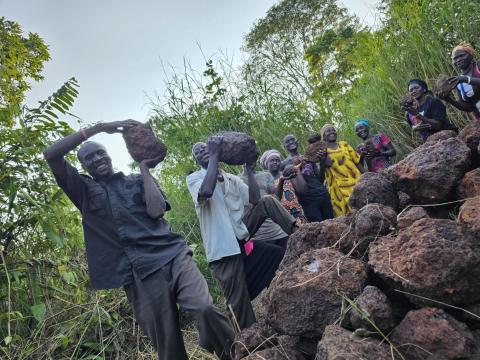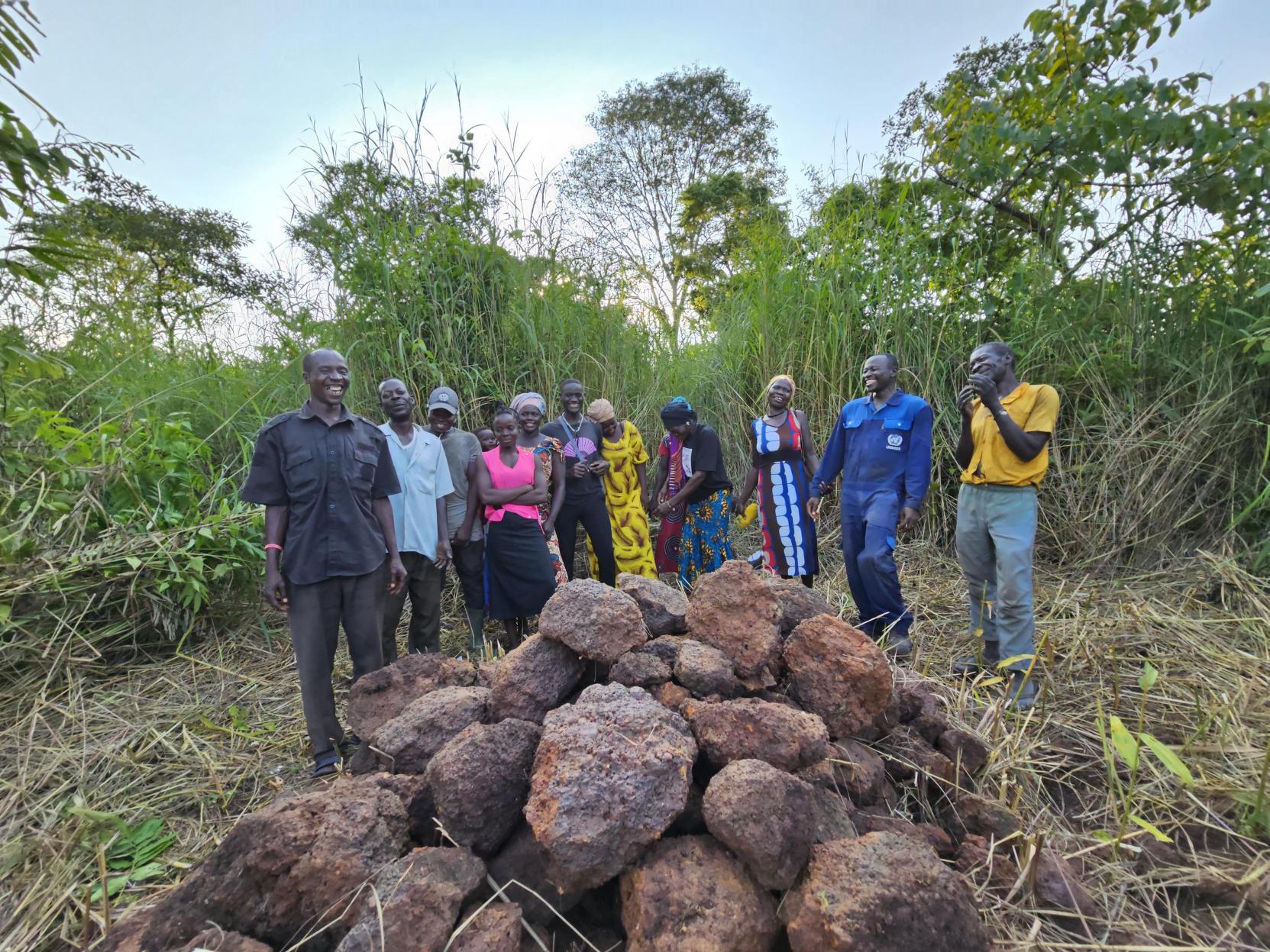Breaking the cycle: Strengthening disaster resilience for communities in South Sudan

13 October is the International Day for Disaster Risk Reduction. Abrham Assefa, World Vision South Sudan Food Security and Livelihoods technical manager, reflects on the importance of recognising, strengthening, and building on the existing resilience and capacities of the vulnerable people for them to become better equipped in preventing, reducing, and recovering from the impacts of disasters and other natural hazards.
South Sudan faces severe livelihood challenges and limited access to essential health services due to conflict, sub-national violence, and climate change. The 2023 Humanitarian Response Plan for the country predicted that in 2023, about 9.4 million people in South Sudan will need humanitarian assistance, ranking second globally for natural hazards, and we see this happening, which is further worsened by the continuous influx of Sudanese refugees and South Sudanese returnees due to the crisis in Sudan.
In 2022, Tonj North of Warrap State was hit hard by floods, leaving most crop fields submerged and nothing for farmers to harvest. As I looked out at the devastation caused by the floods, I felt a sense of heaviness in my heart. It was hard to imagine how farmers were going to survive the aftermath of the disaster. But then, something caught my attention.
Climate adaptation and resilience are crucial in mitigating the impact of climate-related risks including flood, drought/dry-spell, epidemic and wild fire. Our work in South Sudan reduces inequality among vulnerable groups in communities that otherwise would have been pushed back into the poverty cycle.
Amid the destruction, I noticed a few farmers who had gone beyond all odds and used locally available resources to protect their farmlands from the flood. These positive deviants and spirit inspired our World Vision Food Security and Livelihoods team to study them further and understand how they had been able to achieve what most formers deemed impossible.
After understanding their local approach, World Vision invested in social infrastructure to protect the community and their assets from the flood, and one of our initiatives was the Cash-for-Work (CFW) intervention. This initiative empowered the community, protected their productive assets, and boosted the local economy. The income generated from participating in CFW activities supported households to survive and thrive amidst the disaster.

In our project design and implementation, we incorporated ideas and voices from the community, including those of vulnerable groups and people with disabilities. We listened to their needs and ensure that the project caters to their specific requirements. For instance, the dyke that was to be constructed in Village A involved women who employ a cut-and-carry system (a system of growing grass to feed livestock animals such as cattle) with grass that was planted on top of the dyke and a protective structure around the harvested water to ensure children are safe from drowning.
As the project progressed, we realised the need to address the effects of climate change on the community. Thus, along with disaster risk reduction and anticipatory action approaches, we focused on climate-smart agricultureprogramming and supported the community to become financially independent through the Savings for Transformation and linking them to financial institutions for securing loans for their businesses. We emphasized that insurance support for climate-smart agriculture interventions could be a pull factor for resilience.
In retrospect, our efforts in the Food Security and Livelihood sector and our partnership with the community were critical in fostering resilience and mitigating the impact of the flood disaster in Tonj North, Warrap and elsewhere. The positive deviant had shown us that nothing is impossible if we have the will to listen, learn and proactively respond, and determine to succeed.
Investing in disaster risk reduction measures, prioritising prevention and preparedness, and partnering with communities in South Sudan, can empower people to take control of their future.